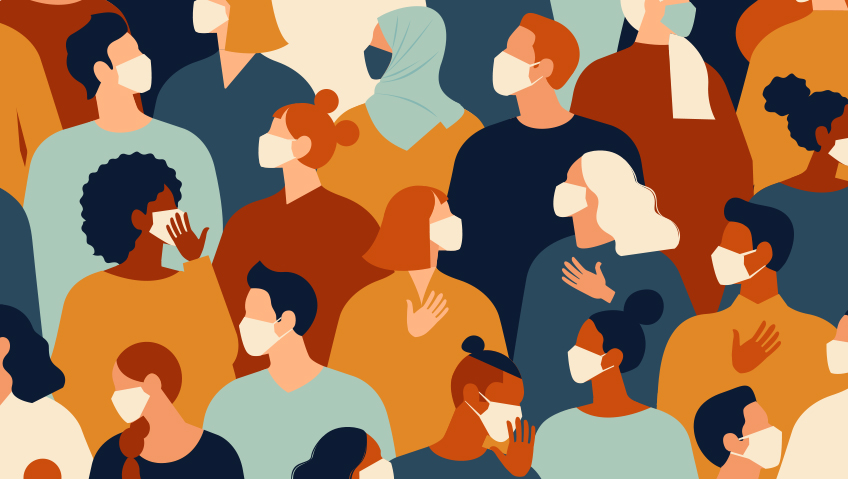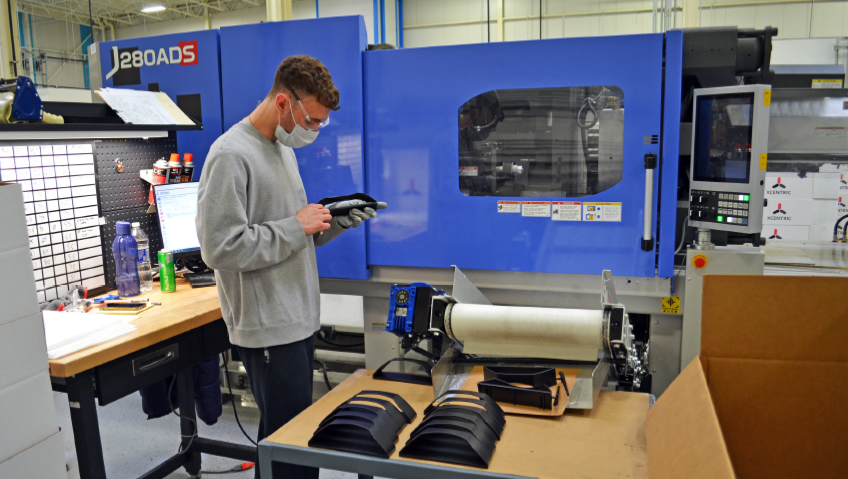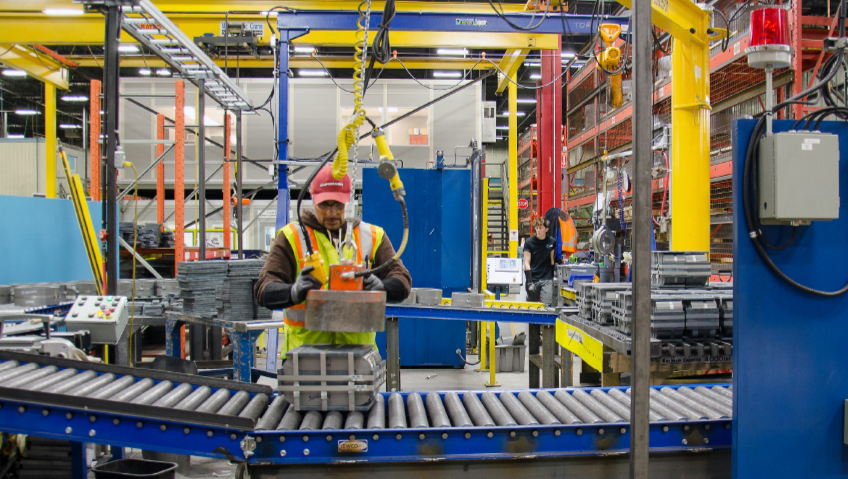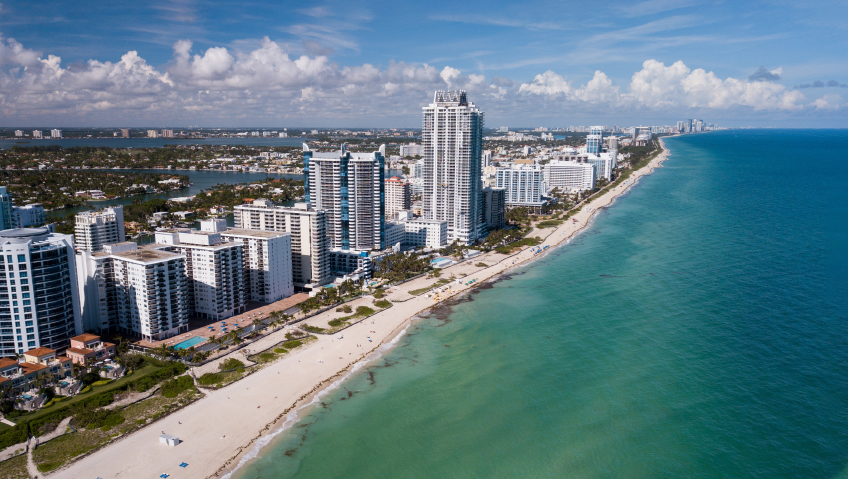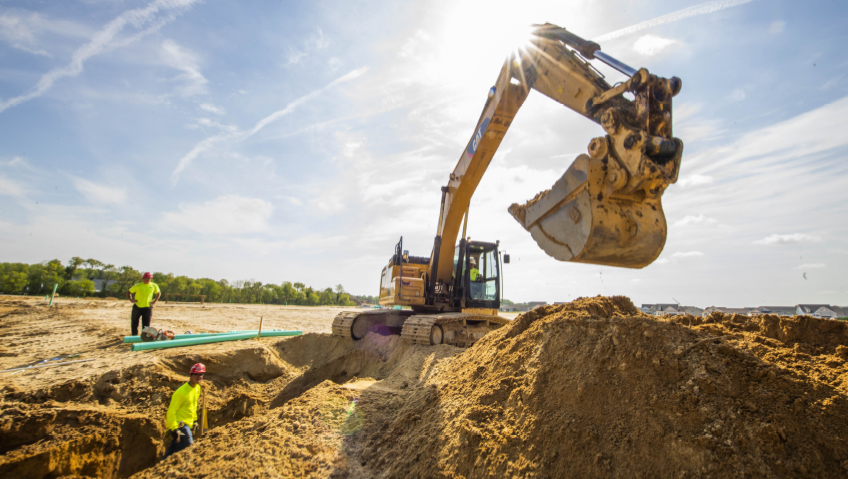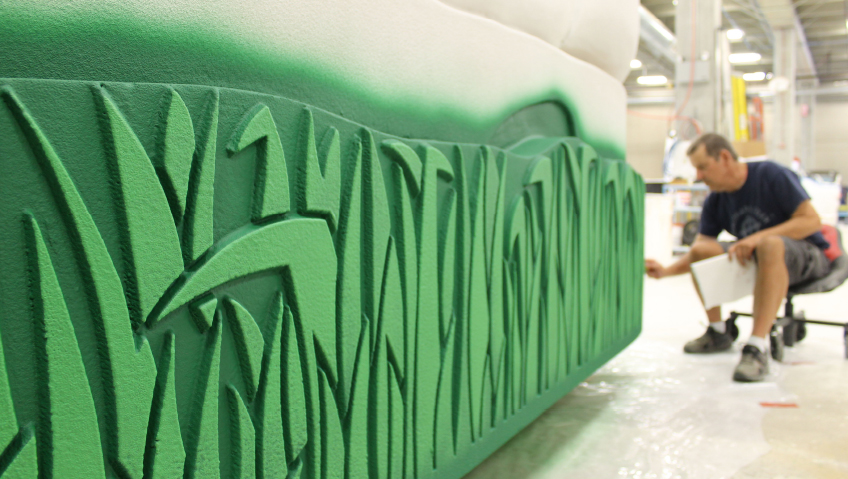The COVID-19 pandemic has posed more than just a threat to human health and safety. It has tested the very limits of our health care systems and our ability to stop contagion, and has decimated the economy. What’s more, there’s no certain end in sight.
COVID-19 showed that humans and the economy alike are vulnerable to a pandemic. Although many have been infected, most will survive, just as many businesses will weather the challenges, but the pandemic has left countless supply chain interruptions, anxiety and uncertainty, and irreparable loss in its wake.
As the pandemic became a more serious threat, demand spiralled for necessities like hand sanitizer, personal protective equipment (PPE), bottled water, and paper products. Demand outpaced supply, bringing empty shelves, additional bottlenecks to the global supply chain, and even greater uncertainty.
In contrast to most, white collar jobs have been relatively secure, as most can be easily transitioned to a work-from-home environment. Not everyone has been as fortunate, as millions found themselves out of work, particularly wage earners in hourly, seasonal, and part time employ at non-essential workplaces.
As people were increasingly forced to stay home, changes in behaviour and economic priorities were reflected in changes in the economy, which is evident when looking at the economic impacts of COVID-19 on an industry-by-industry basis.
Travel, tourism, and hospitality
Undoubtedly, some of the hardest hit sectors are travel, tourism, and hospitality. As land borders remain closed, no-sail orders have docked cruises indefinitely, and daily flights are being reduced or outright cancelled.
While some travelers have found a way to make international travel work despite the rigors of connecting flights, testing, and quarantine, many have decided to obey stay-at-home orders for non-essential travel, some seeking out domestic and local tourist destinations in lieu of their annual vacations abroad.
Airlines, cruise operators, and even aircraft manufacturers are feeling the economic blow. The plight of companies like already embattled Boeing is being exacerbated by cancellations of orders as demand continues to plummet.
Places like theme parks are also trying to navigate how to safely reopen and operate, and tour providers, many of which are sized on the small side, are being all but snuffed out. Job losses are climbing, and billions of dollars are being lost.
Reduced travel and cancelled events have also meant fewer hotel stays. The hospitality industry is valued at $650 billion annually, making it an important contributor to the nation’s gross domestic product (GDP). Currently, the industry is operating at below 25 percent capacity, which is a major hit to literally millions of employees and the economy as a whole.
Governments have offered industries like airlines financial support, but as the pandemic persists, what cash flow many of these companies had is running out. Of course, hindsight suggests that when times were good and executive bonuses even better, it may have been wiser to leverage some of those funds to pay down airline debt and improve their cash flow. But… who could have guessed?
In-person events and entertainment
Gone are the days and nights of attending conferences, movie theaters, concerts, and sporting events, as people are forced to entertain themselves from home. Casinos have also been ordered closed which means even gambling, a $261 billion industry in the United States, has taken a hit serious enough to turn national institutions like Las Vegas into a husk of their former bustling selves.
The cancellation of events has been hard on local economies, many of which depend on the influx of visitors. The loss of sports events and stage performances and the like has resulted in the loss of millions of dollars in ticket sales alone, in addition to millions of dollars of non-ticket revenue, like concessions and merchandise, not to mention job losses.
Restaurants
Restaurants are a major sector that has had significant job losses, as owners work to restructure operations to survive in the COVID environment. Dining rooms have been forced to close and take-out is the only way to remain in operation.
Restaurants like Red Lobster anticipated the trend towards take-out even before the onset of the pandemic and as a result, were equipped with the infrastructure to support that transition, enabling them to adapt quickly. Smaller businesses and mom-and-pop-type establishments may not have the resources to do so and will suffer the brunt of the pandemic’s wrath.
Construction
Another unintended impact of the economic slowdown is the impact on construction. Reduced cash flow and less than optimistic outlooks mean companies have fewer resources available to support capital investments. As a result, many projects have been delayed, cancelled, or postponed indefinitely.
Vancouver International Airport has announced significant cuts to their capital improvement projects, citing reduced passenger volumes. Less travel means capacity improvements are no longer pressing, demonstrating again the interconnectedness of the economy.
Despite the hit to commercial construction, home improvement projects are more popular than ever. People forced to stay home are more than willing to take the money they would have spent on a vacation abroad to make technological, functional, and aesthetic improvements to their homes – now their workspaces, too – since so much more of their time is spent there.
Gyms and personal services
The closure of gyms has only reinforced the home-improvement trend mentioned above. As people are forced to work out at home (and with more time on their hands to do it), they are making greater investments in their home gyms, which has led to a supply shortage of exercise equipment from many popular online retailers.
Personal services are also becoming a thing of the past. People used to be too busy or distracted to handle the smaller tasks of daily life, but more free time and time spent at home means that gone are the days when dog walkers, laundry services, and childcare providers were in high demand.
People are increasingly finding themselves cooking at home, too (and, if the shortage of yeast was any indication in the early days of the pandemic, we have all become secret flour-dusted bakers).
Transportation
Transportation has also taken a hit. Fewer people commute, freeing up roadways and reducing metropolitan congestion, which is a great thing – isn’t it? Unfortunately, it’s also reducing demand for public transit, taxis, and ride shares. Car sales are down, parts and service calls are fractional, and the oil and gas industry is taking an even greater hit as fuel demand is at a low.
Retail – the good and the bad
Retail is an interesting case. Necessities like groceries, medicines, pet food (and their related manufacturers) have experienced sustained demand, but retailers with a significant brick and mortar presence and with outdated or insufficient online platforms, are finding it a challenge to adapt and survive. Truth is, in the modern world they were very likely struggling pre-pandemic too.
Other sectors are managing just fine. Banks announce record profits. Insurance companies thrive. Providers of television programming, internet services and streaming services are seeing growth as people seek out alternative forms of entertainment and connectivity.
The same can be said of technology retailers and services that support those who are working and studying from home.
Likewise, beer, liquor, wine, and cannabis sales are doing well. Stores have remained open to avoid a public health crisis from occurring given the rate of dependency, but there is additional concern about the increase in dependency expected to result from the extended lockdown. Undoubtedly, recovery from this pandemic will take a multifaceted approach.
What will recovery take?
First, the virus must be controlled. Infection rates have to be reduced for any semblance of normality to return.
Likewise, the government needs to step up with a plan to support those businesses, and the people behind their operation, to ensure they are getting the resources they need to actively participate in the economic recovery process.
Recovery time is likely to vary based on sector and consumer comfort level. We still do not know how long it will be before we can safely board a plane on a family holiday, attend a live concert or sporting event, celebrate milestones with family and friends, or conclude a business deal with handshake and smile, but the introduction of a vaccine is promising for all.
While this has been a time of great challenge, conditions have also fostered a rapid rate of innovation that may not have been the case otherwise. It’s a great opportunity to rebuild a stronger, more just economy out of the ashes of the pandemic as soon as the time comes.

